Pain Management
How will my pain be controlled?
Pain is a highly complex sensation involving multiple nerve pathways and chemical reactions. As a result more than one type of medication is the best way to treat pain. It is best to attack pain in every way it can be perceived, and this is accomplished using a multi-modal pain regimen grounded in the latest medical research. The foundation of this approach is to combat pain on all fronts and use opiate pain medication, which is addictive and dangerous, only as a last resort.
Medication and Remedies in the First Week after surgery:
Antibiotics and DVT Prophylaxis
The first two medication types to review are related to preventing medical complications. Some of the most devastating but rare problems we are trying to avoid are an infection or a blood clot like a deep venous thrombosis (DVT) or pulmonary embolus (PE). To assist in prevention of these issues we administer prophylactic medications as listed below:
Antibiotics
- Used to help prevent infection
- At least one antibiotic will be given to you via IV before your surgery begins
- For overnight hospital stays you will be given 2 more doses at 8-hour intervals
- If you are discharged home on the day of surgery we will give you antibiotics while you are at the hospital. You will receive a broad-spectrum antibiotic that will be effective against common skin bacteria
DVT Prophylaxis and anticoagulation
- Used to thin the blood after surgery to help prevent a clot, but judiciously so as not to provoke bleeding
- For most patients without a DVT/PE history, a “baby” Aspirin 81mg twice a day for one month (60 pills) is effective and has a low risk of side effects
- Any patient with a history of blood clots will be placed on Xarelto (rivaroxaban) 10mg daily for 30 days (30 pills)
- If you are anticoagulated prior to surgery for other medical reasons (i.e. warfarin for atrial fibrillation) you will be placed on your usual home medicines after surgery
Cryotherapy
Tried and true, traditional periodic cold therapy is effective in decreasing pain and inflammation after surgery and injury. There are multiple ways to accomplish this with icing machines or simple ice packs, but the principle is to cool the area intermittently. This is effective especially after strenuous activities such as physical therapy
Pain Medication
Tylenol (Acetaminophen) 500mg – 2 tablets by mouth every 8 hours for 2 weeks or longer if needed. Limit of 4000mg in a day. Tylenol is a component in many other medications so be cautious not to exceed the limit
Anti-Inflammatory Medications
Used to decrease pain caused by inflammation that develops as a result of surgery and the normal healing process. Long term or heavy use can be harmful to the kidneys.
- Celebrex (Celecoxib) 200mg- 1-2 tablets by mouth daily, take for 7 days (#14)
OR
- Mobic (Meloxicam) 7.5mg – 1-2 tablets by mouth daily, take for 7 days (#14)
- Steroid medication: every patient without an allergy will receive steroids in their IV after surgery to help decrease inflammation throughout their body. Diabetic patients may need to pay close attention to their blood sugars in the days surrounding surgery
Nerve Medication
Used to treat pain by specifically targeting nerves. May use oral medications for a week or longer if needed.
- Lyrica (pregabalin) 75mg – 1 tablet by mouth tablet daily for 1 week (#7)
OR
- Neurontin (Gabapentin) 300mg – 1 tablet by mouth three times daily for 1 week (#21)
Nerve Blocks
All eligible patients will receive a combination of nerve block options unless there is an allergy history to local anesthetics. This medication is applied at two locations, first by the surgeon directly inside the joint and surrounding incision during the procedure, and secondly by the anesthesiologist typically using ultrasound guidance to apply a block to specific nerves. These medications often last hours to days and provide prolonged pain relief
Muscle Relaxant
- Used for muscles spasms that may occur during the healing period
- Zanaflex (Tizanidine) 4mg – 2 tablets by mouth every 6 hours as needed for spasms (#30)
Stomach Prophylaxis
- Used for gastric irritation that may occur after anesthesia or as a result of other medications
- Prilosec (Omeprazole) 20mg – 1 tablet by mouth daily on an empty stomach (#30)
Stool Softener
- Used for constipation that may result after anesthesia or opioid pain medication
- Peri-Colace (Sennosides-Docusate Sodium) 8.6mg/50mg – 1 tablet daily for constipation (#30)
Anti-Nausea
- Zofran (Ondansetron) 4mg ODT – 1 tablet under the tongue every 6 hours as needed (#30)
Narcotic or Narcotic-Like Pain Medication
- Used if other options to control pain have failed. It is expected these medicines will be required in the early recovery period and possibly before physical therapy at time
- The doses listed below may not be as effective if you have been using narcotic pain medication or other substances
- Tramadol 50mg – 1 tablet by mouth every 4 hours as needed for pain (#30)
- Effective for pain at a lower severity and able to be combined with other medications including oxycodone and hydrocodone
- Oxycodone 5mg – 1 to 2 tablets by mouth every 6 hours as needed for pain (#30)
- *May take in addition to Tylenol or Tramadol as a last resort if pain not adequately controlled
Not all of these medications are required for your surgery to be a success, but they all can play a role. Unfortunately, each medication has some risk of side effects and not every medicine will be appropriate for each patient. If you are allergic to a medication or it is too expensive there are usually replacement options.
Ice, Tylenol, and anti-inflammatories will be the foundation of treatment. The rest of the medications will likely be needed to some degree at the beginning of recovery. Taking narcotic pain medication before surgery makes it much harder to treat plain. Please tell your doctor if you have been taking opiate pain medications.
Please note that all narcotic pain medications (Tramadol, Oxycodone, Percocet, Norco, etc.) are controlled substances and are regulated by the DEA (Drug Enforcement Administration). While these medications are typically used early in the postoperative period, it is important to realize these are addictive medications with many side effects. These medications are not able to be e-prescribed, faxed in, or called into the pharmacy and require a handwritten prescription to fill. Any refill requests for these medications must be called into the office during business hours. Please provide 72-hour notice to avoid a delay in the refill request. Narcotic pain medication will only be prescribed for a short period of time postoperatively.
Local anesthetics (i.e. Novocaine) are put into the incision after surgery. It is common for patients to encounter more pain on the first or second day after surgery when swelling peaks or after an over-aggressive therapy session.
It is important not to drink alcohol or drive while taking narcotic medication.
Resume normal medications for other conditions the day after surgery. Patients with Diabetes will want to pay close attention to blood sugar levels at the time of surgery as well as post-operatively due to the possible risk of infection associated with elevated blood sugars.




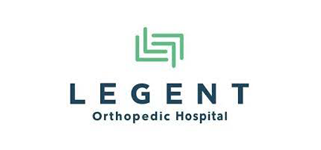
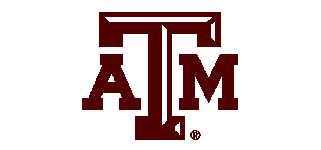

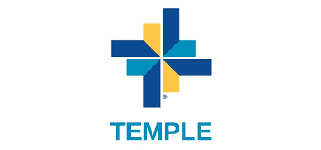

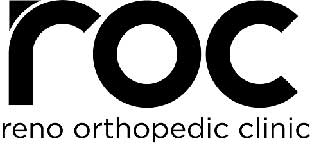
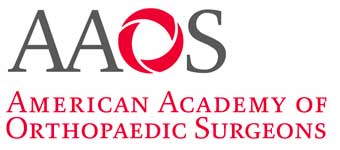
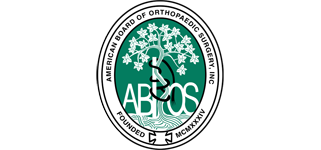
Recent Comments